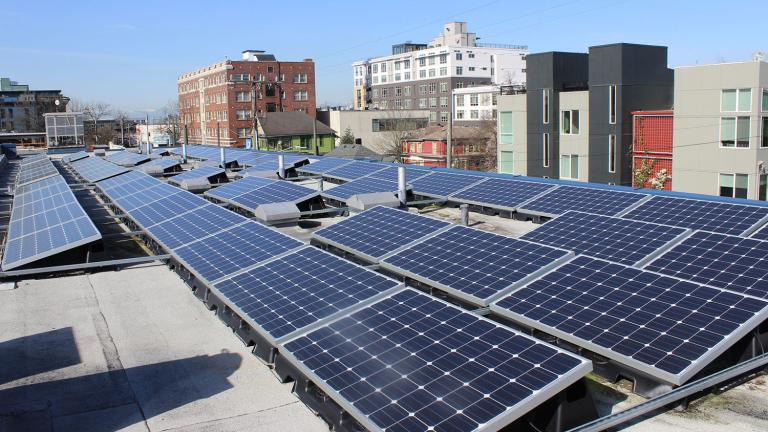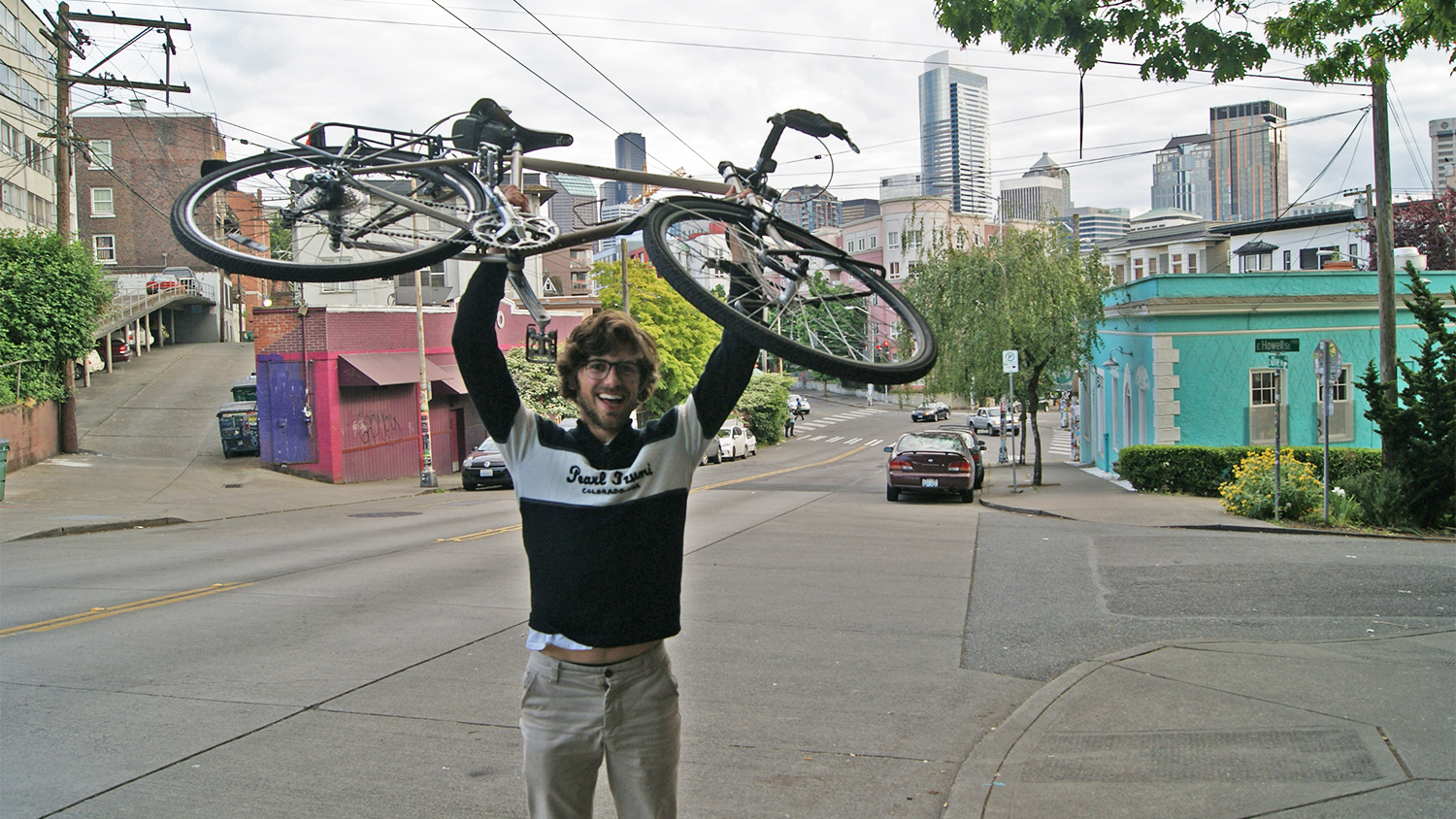I’m moving to London by bicycle. From Seattle. (And by ship, too, when the Atlantic Ocean gets in the way.)
I hope to two-wheel it into upstate New York with my buddy Neil, who’s joining me for the bike trip, sometime in early August. That way, I’ll have enough time to establish “permanent residence” at a friend’s house in Lake Placid and apply for a visa from the Spanish consulate in NYC by the time my cruise leaves for the U.K. on Sept. 4. I’ll spend the fall term in London, auditing some courses and preparing to study Spain’s economic inequality at a university in Barcelona for the following nine months.
Along the way, I’ll seek out the real sharing economy and write about it.
As a Grist fellow last year, I wrote this little series about what I call the “real sharing economy” — as opposed to the bullshit sharing economy, which is embodied by money-for-service, for-profit enterprises like Airbnb, Uber, and even TaskRabbit. (Since then, a lot has been written about the idea — and in response to it.) This trip is my chance to really take it for a spin.
I’ve saved a little (thanks for the rent-free living during my time as a Grist fellow, mom and dad!), but I won’t have any income. The plan is to camp, forage, couch-surf, and adventure, bathing in lakes but also in the bathrooms of hosts we meet via the Warm Showers network for bicycle touring (a superb example of the real sharing economy). We’ll have to ask for directions and advice a lot, too, since Neil is one of now four known millennials who don’t use smartphones.
We’re not setting hard-and-fast “no money” rules for crossing the continent. Legendary folks like Rob Greenfield have proven that it’s entirely possible to bicycle-travel the U.S. for free, subsisting on benevolence, the effluence of affluence, and what’s left of unpolluted wild nature — but it might take us a while to ascend to such awesomeness.
Still, figuring out how to meet some needs without money will be quite important. To make “slow travel” work, I’ll rely a lot on that real sharing economy that’s just people taking care of people. You know, generosity. Real sharing.
Besides, sharing interests me, introduces me to awesome new friends, earns me thanks from the climate. As I get my bike ready to traverse North America, I’m spending plenty of time at my community bike kitchen, the Bikery, trying really hard to learn how the darn thing works. And I’ve been work-partying at the Beacon Food Forest, rather than planting my own garden, because it’s an urban farming project that will live on long after I depart. (Also, it’s really fun.)
It’s troubling that we’re often forced to “play capitalism” with each other, because when we get rid of valuable things or share a spare bed we probably need the money to pay for food and shelter that other people (or “corporate persons”) own. This mindset becomes such a habit that many friends keep track of meals they buy each other, and make sure to pay back or at least even up. There are even scorekeeping apps now to calculate who owes whom how much, down to the penny.
Because of the supposed “equivalence of exchange” in money transactions, a relationship can end the moment cash is traded for stuff or services. That goes for most of the transactions we make in the bullshit sharing economy, too: Try to think of one long-term friend you met selling or buying something on Craigslist, or when you stayed at her place on Airbnb.
On the other hand, gifting and sharing begins relationships. Humans tend to be into reciprocity, even when no one’s keeping score.
Or at least I’m hoping that’s true. I realize I’m going to be asking a lot of people to share their stuff and their homes along the way. I’m doing a lot of sharing on the front end, though, like giving away nearly all my possessions to friends and strangers — I mean, old and new friends.
It’s plenty satisfying to see my (former) clothes on others and know that my favorite books will be passed around, instead of pocketing a few extra dollars for calories that I hope I’ll be able to find in dumpsters or friendly strangers’ refrigerators. Hopefully there’s karma for these sorts of things.
Grist will be publishing periodic updates from the road, complete with pretty pictures (Neil is a quasi-professional photographer). Wish me luck finding internets in eastern Montana.
In the meantime, if you see a pair of wayward cyclists pedaling into town some summer evening, offer them some food scraps and a kitchen to work in. You might just end up with a tasty meal.



